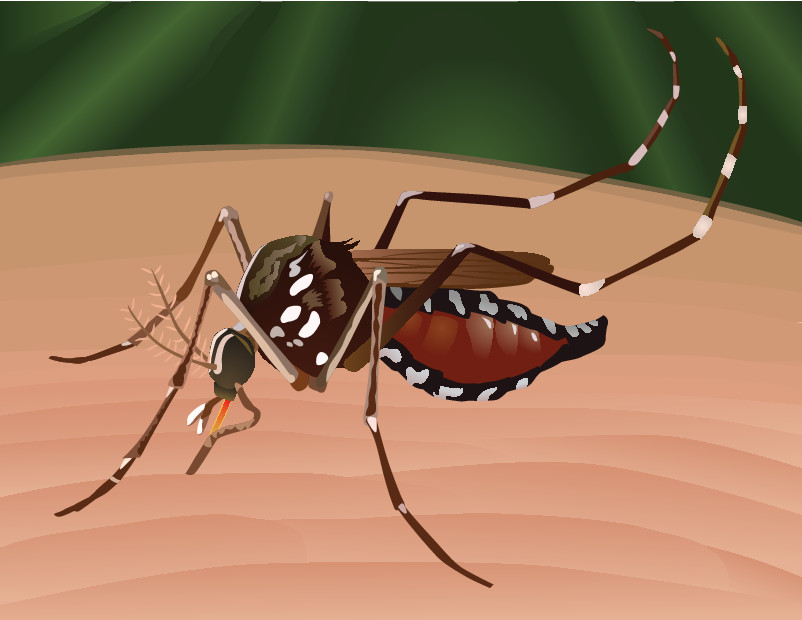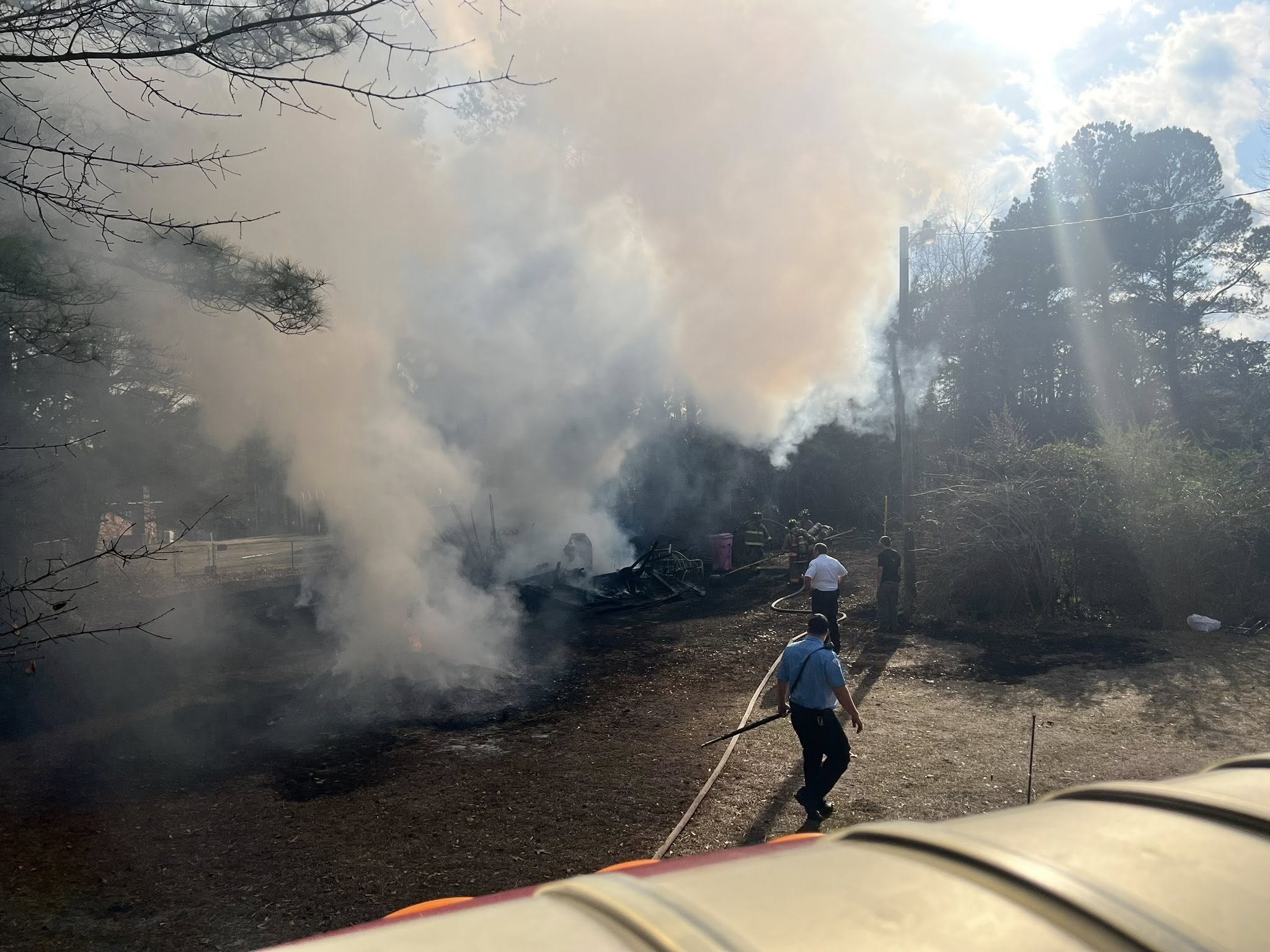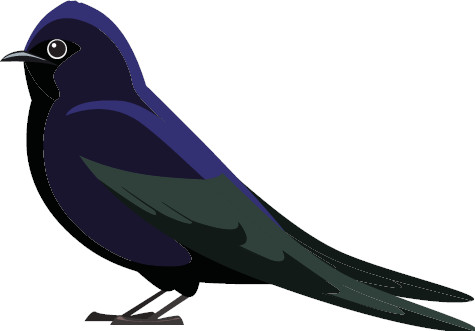Mosquitoes are breeding in abundance in floodwaters left behind by Tropical Storm Debby, prompting officials throughout the state to step up pesticide treatments to control them.
Experts with the Clemson University Extension Service and Regulatory Services units are advising beekeepers to be aware of increased sprayings and prepare to cover their hives if necessary while sprayings are in progress.
Additionally, officials with Clemson Livestock Poultry Health — home to the Office of the State Veterinarian — are urging horse owners to make sure their animals are up to date with vaccinations after multiple cases of the mosquito-borne disease Eastern Equine Encephalitis (EEE) were reported.
Mosquito sprayings will increase
According to reports, multiple South Carolina counties will increase mosquito abatement efforts, including aerial spraying.
Horry County will begin aerial spraying Monday, Aug. 26, 2024, after West Nile Virus (WNV) was confirmed by County Mosquito Control and the S.C. Department of Environmental Services. The action comes after the county was placed under a local “State of Emergency” due to the flooding. The spraying will be done during evening hours, weather permitting.
Horry County beekeepers are advised to contact Horry County Mosquito Control to check the spray schedule and request exclusion.
The spraying is an essential step in protecting people from mosquito-borne diseases, including Zika virus, WNV, Chikungunya virus, dengue and malaria.
According to State Pesticide Law, 24-hour pre-notification is required prior to spray applications.
“We are cognizant of the impacts aerial spraying for mosquitoes can have on hive health, which is why we are doing our best to warn beekeepers in advance and urging them to watch local media outlets, government agency websites and social media for announcements about aerial applications and fogging operations,” said Stephen Cole, executive director of PSA Regulatory Services, a Clemson division that carries out state regulatory functions
Beekeepers and certified organic farms are encouraged to report the location of their operation directly to their local mosquito control program. Beekeepers can report the location of their hives and receive email notifications of sprayings by registering their hives with Clemson’s Voluntary Beehive Mapping Program.
The system is password protected for confidentiality and privacy; beekeepers can log into the system to load geographic data on their hives and see planned pesticide applications nearby without anyone other than pesticide applicators accessing their information or hive locations.
“The reporting tool is just one way we are trying to protect the honeybee,” said Brad Cavin, who leads apiary inspections for the Department of Plant Industry. “The goal of the tool is to connect location information provided by the beekeepers with the aerial applicators.”
The City of Dillon has already begun aerial spraying as well, and Dillon County is operating trucks.
Eastern Equine Encephalitis (EEE) on the rise
Animal health officials are urging horse owners to have their animals vaccinated for Eastern Equine Encephalitis (EEE) after horses in Dorchester and Charleston Counties contracted the mosquito-borne disease.
One horse was unvaccinated and the other was reported as “vaccination status unknown.” Both horses were euthanized.
While horse owners can take measures such as turning them in at dawn and dusk and using spray repellents, vaccination is the only surefire way to protect their horses from EEE, WNV and rabies.
“There has been an explosion of mosquitoes in the aftermath of Tropical Storm Debby, and that results in an increase in the diseases they spread. Vaccinations are imperative in the current environment,” said Sean Eastman, director of Equine Health Programs, Clemson Livestock-Poultry Health.
Borne by mosquitoes, these diseases have a very high mortality rate in infected, unvaccinated horses — between 30 and 40 percent for WNV and 90 percent for EEE.
Likewise, mosquito control is an important precaution. Both EEE and WNV are maintained in nature through a cycle involving the freshwater swamp mosquito, Culiseta melanura, commonly known as the black-tailed mosquito.
The EEE and WNV viruses are fast-acting. Symptoms of both diseases usually develop from two to five days after exposure and include neurologic difficulties such as stumbling, circling, head pressing, depression or apprehension, weakness of legs, partial paralysis, the inability to stand, muscle twitching or death.
In addition to EEE and WNV, other neurologic diseases, including rabies and EHV-1, can infect horses. Any livestock that display neurologic symptoms — stumbling, circling, head pressing, depression or apprehension — must be reported to the state veterinarian at 803-788-2260 within 48 hours, according to state law.
A list of reportable diseases, along with other resources, is published on the LPH website at
www.clemson.edu/public/lph/ahp/reportable-diseases.






